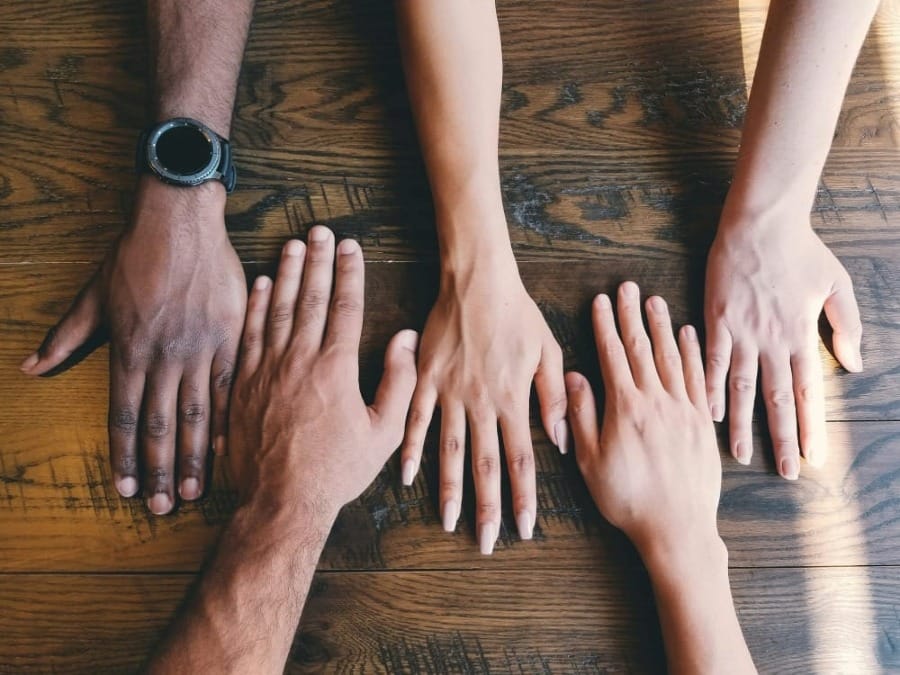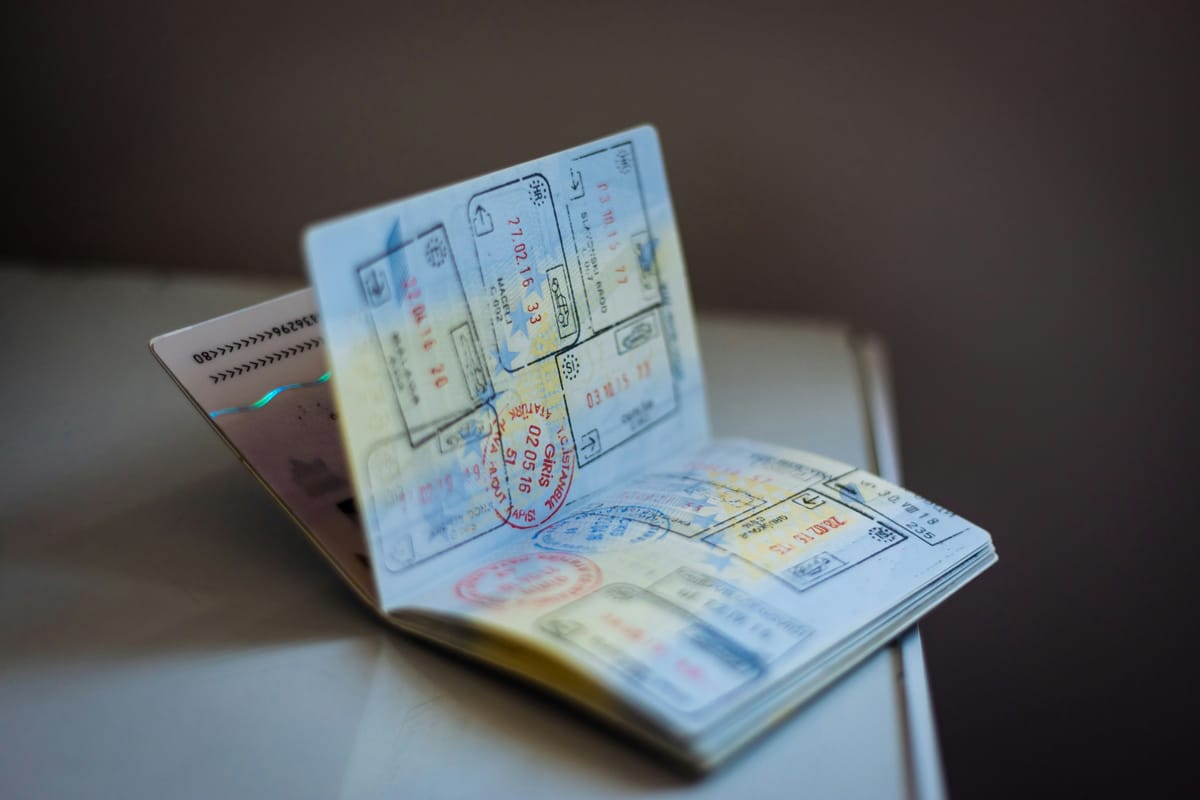Unconscious bias: How Japanese people view foreigners
Yasuo Tachikawa, an immigration lawyer in Tokyo, has dealt with visa applications and issues foreigners may face in Japan. Based on his experience, we discussed Japanese views toward foreigners in the community.

This article was originally published on the website of Posse Nippon, the publisher of Small Business Japan, prior to the launch of Small Business Japan (October 2024). Articles published before September 2024 have been edited and transferred to this site.
We’ve asked an immigration lawyer – 3/3
Summary
Japanese often unconsciously see foreigners as being 'not Japanese'
A way to embrace diversity in the Japanese community is ...
Became an immigration lawyer in the late 40s
Consultations include not only visa applications but also issues at the workplace and home etc..
Japanese often unconsciously see foreigners as being 'not Japanese'
Q: What particular tasks do you carry out as an immigration lawyer?
Yasuo Tachikawa: As an immigration lawyer, I work on visa applications for foreigners working in Japan. I work especially with people from Vietnam and Myanmar. I don't speak Vietnamese, but I manage to communicate by using 'Pocketalk' (an interpreting device). I can get through quite well.
Q: Is there any particular reason that you started as an immigration lawyer?
YT: There is considerable demand for work related to visa applications for foreign employees, and one time, a company I knew asked me to give a lecture at an in-house training session. I took this opportunity to talk about 'Working with foreigners'. This was when the company was about to accept Vietnamese workers. Since then, inquiries have been coming in through the Vietnamese network in Japan.
What I talked about during my lecture was a tendency of Japanese people to often unconsciously see foreigners as being ‘different’ i.e. not Japanese. When Japanese people come into contact with foreigners, we should be properly aware of this fact. This is especially true for Japanese people who have never had contact with foreigners. I then told them that they should try not to have a biased view of the other person.
Q: That is a very important point. Why did you decide to talk about it?
YT: My counterpart at that time was the company's general manager. He was a person of Japanese descent from South America, and I got the sense when I spoke with him in our preliminary meeting that he felt he did not belong either to his home country in South America or in Japan. He reminds me of my friend who was of Japanese descent from Brazil and grew up in both Japan and Brazil. At the time we met he was just returning to Japan from Brazil and was struggling in Japan because of the language barrier. He often spilt out that he wanted to go back to Brazil.
Because of these experiences, I decided that the theme of my lecture speech would be to make the audience aware of the unconscious distinction that we, as Japanese, should pay attention to when we accept foreign employees from now on, that they are different from us.
By the way, my Japanese-Brazilian friend has stayed here in Japan. One of the reasons he decided to stay could have been that he had a girlfriend. They are now married and living happily.
Q: Tachikawa-san, you have a deep understanding of other cultures. Do you have any experience of living in a foreign country?
YT: I have no experience of living in a foreign country myself. However, I have experience of having a Myanmarese colleague at my previous workplace who I interacted with on a daily basis as his 'trainer'.
And my mother is a former Manchuria-born Japanese and was raised there. The family hired a Korean nanny at home. Since she was in daily contact with non-Japanese people, such as Korean maids and local Manchu people, she is a person who does not judge or view people based on their nationality or other relevant factors. I was brought up by such a mother, so that may have had an influence on me.

A way to embrace diversity in the Japanese community is ...
Q: How do you deal with the distinctions, discrimination and prejudice that Japanese people unconsciously make when you come into contact with such situations? I would be surprised and become speechless.
YT: Well, it's difficult for me to communicate in a way that they understand. For example, my parents' generation (in their 80’s or so) has a very different attitude towards foreigners.
I myself grew up and live in Japan, so I may have unconsciously harboured discrimination and prejudice towards people from other countries. First of all, I always try to think about the possibility that such feelings may exist within myself. With such a perspective, I believe that we will be able to respect them as human beings, not as a racial or national unit. To do this, I believe that it is important to talk to each other well.
Q: Can you clarify the meaning when you said 'to talk to each other'?
YT: Of course. It is not only talking to others but also calmly listening to others who would have different views and perspectives. I believe such an attitude will help us understand diverse ideas and people, both foreigners and Japanese, and eventually embrace diversity.
Became an immigration lawyer in the late 40s
Q: You became qualified as an immigration lawyer when you were in your late 40s. Tell us about what you have been doing since you became independent.
YT: At first, I did not study administrative law in order to become independent. The company I worked for was involved with public facilities, and I had to talk to a lot of government officials. So, I thought it would be a good way to learn, so I started studying for a legal specialist* (gyosei shoshi, 行政書士) qualification. In fact, I didn't really know what exactly I would be doing until I took the exam. I established my current firm in June 2020.
*An immigration lawyer in Japan belongs to the legal specialist or gyosei-shoshi (行政書士) category.
It was when the new coronavirus epidemic had started. At the time, most of the work I was handling was visa work for people coming to Japan from abroad. As soon as the coronavirus pandemic broke out, all such work was cancelled, and requests stopped.
Consultations include not only visa applications but also issues at the workplace and home etc.
YT: At the same time, the number of consultations from foreigners in Japan has gradually increased. The main consultations are about changing jobs, changing visas to a ‘Specified Skilled Worker’ category, or having to change their status of residence to 'Designated Activities No.46’' because they lost their employer due to redundancy or bankruptcy.
Many requests are received by word of mouth from the Vietnamese community. We do not advertise on our website. There are several big companies that specialise in certain regions and countries, but we don't want to compete with them.
Q: You have also been asked for advice from foreign workers who are having problems that are beyond the scope of the immigration lawyer's work. Could you tell us about that?
YT: Yes, sometimes, even before Covid. Some are being power-harassed at their workplace or abused by domestic violence from their husbands. In such cases, we refer them to the local foreigner's advice centre, and if the problem cannot be solved there, we refer them to a lawyer.
Currently, the 'Japanese Border Measures' are gradually being eased and consultations are gradually being held to help people enter the country again.
Q: Do you have any thoughts on consulting with foreigners?
YT: Many people feel discriminated against while living in Japan and are struggling to a greater or lesser extent, but in fact, I think there are quite a few people who feel it is difficult to live in their home countries as well. There are many countries where the disparity is more severe than in Japan. I would like to help these people as much as I can.
*Disclaimer: This article is current as of the date published. Conditions may change at any time due to institutional and other changes. Checking the latest information on schemes is recommended.
Author’s note:
We interviewed Mr. Tachikawa, who has extensive experience in immigration law, about the procedures immigrants in Japan need to follow when starting their own businesses. This article is not an advertorial, as Mr. Tachikawa generously agreed to speak with us on a voluntary basis. His office is available to answer questions in English.
You can contact Accurate Administrative Scrivener Corporation (Accurate Gyoseishoshi Hojin or アキュレイト行政書士法人) directly through their contact page or official LINE account (please check the QR code).








